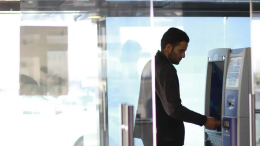As Lebanon continues to endure an increasingly alarming array of political, economic, social, and health crises, the country’s political leaders have announced plans to repatriate 15,000 Syrians each month, insisting that the conflict in Syria is over and the country has become safe.
According to Lebanese authorities, the Syrian Government has also confirmed that it is ready to receive repatriated Syrians and provide them with everything they need – from transportation to hospitalization and education.
However, Lebanon has not demonstrated how it conclusively determined that Syria is now safe. The country has also confirmed that returns will take place without the involvement of UNHCR – which has raised concerns about whether repatriation can be a long-term and sustainable solution for displaced Syrians.
Amid increased discussion on repatriation, particularly for Syrians at the regional level, the paper examines what this process looks like for Syrian refugees from Lebanon, whilst framing it alongside notions of political will, protection, as well as preconditions for safe return.
Given that voluntary repatriation and safe return often overlap, the paper explores this intersection amid larger conversations surrounding the Lebanese Government’s approach to return, the stance of UNHCR and its role, as well as regional and international conversations on how return can take place durably and sustainably.
The paper argues that Lebanon’s policy on repatriation must include the following elements in order to ensure that repatriation is a durable solution for Syrians and conforms with international refugee law:
-
Plans for repatriation must be rooted in protection standards and principles, including that refugee repatriations must be well-informed through a tripartite agreement between the Governments of Lebanon and Syria and UNHCR.
-
The Syrian Government should provide guarantees that returnees will not face harassment, discrimination, arbitrary detention, physical threats, or prosecution.
-
Monitoring of the repatriation process must be ensured through close cooperation with UNHCR and the Syrian Government, and adequate and comprehensive information must be provided to Syrian refugees so they are well informed of conditions in areas of return.
-
Reintegration assistance must be provided post-arrival in Syria within ongoing humanitarian programmes.
-
Ongoing voluntary repatriation must be carried out in safety and dignity by local authorities, and should only be carried out in specific areas of Syria, where there is evidence that the conflict has ceased and protection thresholds, in accordance with international refugee law and standards, are upheld.
Read the Discussion Paper, ‘Safe Return and Voluntary Repatriation for Syrian Refugees from Lebanon: What Needs to Happen Next?’ here.



